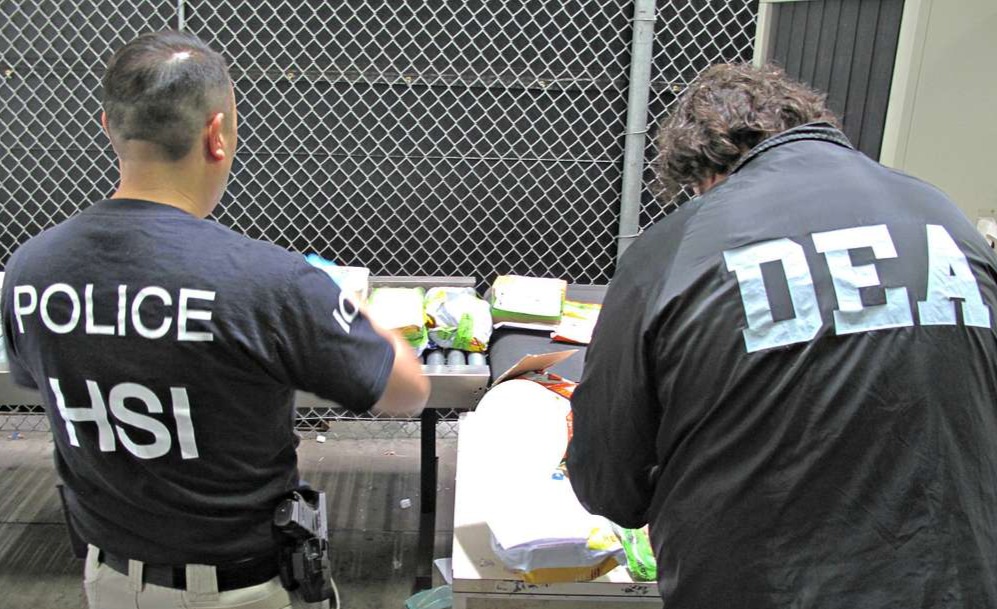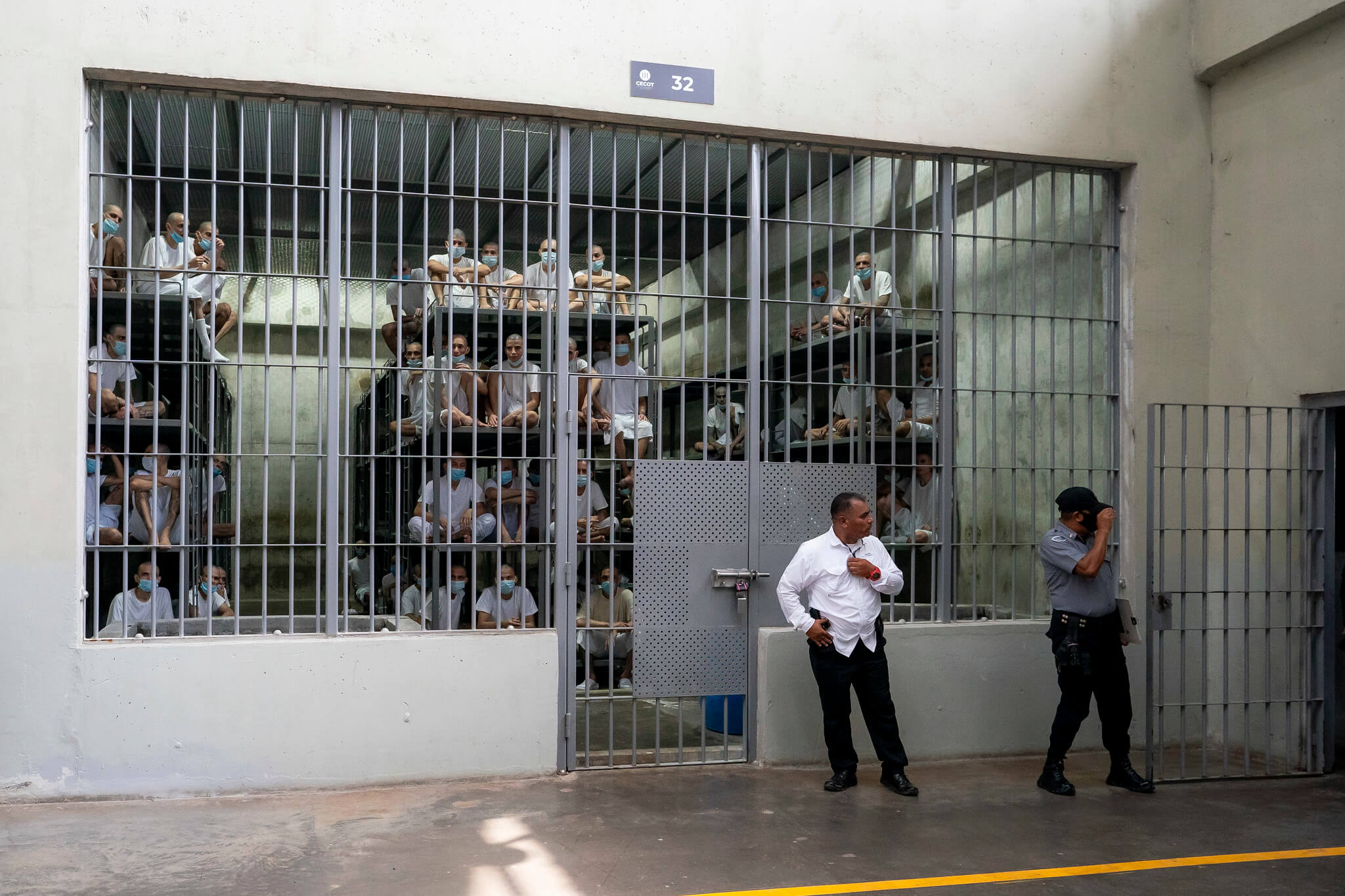Today's Headlines and Commentary
The New York Times’ Rukmini Callimachi examines “Emni,” a wing of the Islamic State that focuses on external operations and internal policing, and which appears to be the main actor behind the group’s export of terrorism abroad. Callimachi profiles Harry Sarvo, a German citizen who traveled to Syria to join ISIS only to be told that he
The New York Times’ Rukmini Callimachi examines “Emni,” a wing of the Islamic State that focuses on external operations and internal policing, and which appears to be the main actor behind the group’s export of terrorism abroad. Callimachi profiles Harry Sarvo, a German citizen who traveled to Syria to join ISIS only to be told that he should return home and launch strikes at soft targets in Europe. According to Sarvo, hundreds of operatives have returned to Europe and Turkey with the intention of launching attacks.
Callimachi is also the subject of her own profile in Wired. The feature details how she has utilized the Islamic State’s social media accounts to become the leading journalist in covering the beat.
More armed police officers will patrol the streets of London as part of a string of measures taken by the United Kingdom to prepare for the types of terrorist attacks seen elsewhere in Europe. Atrocities like those carried out in France, Germany, and Belgium over recent months have demonstrated new methods of attack by militants, from multiple mass shooters to lone assailants using heavy vehicles as weapons. Authorities across Europe are scrambling to adapt their counterterrorism efforts in response.
The Washington Post reports that a Metro Transit police officer has been arrested and charged with attempting to provide material support to the Islamic State, marking the first time a U.S. law enforcement officer has been accused of trying to aid the terrorist group. Nicholas Young, who was arrested Wednesday at the request of an undercover federal agent, sent codes for mobile messaging cards that he believed would be used to communicate by ISIS fighters overseas. He has been an employee with the Metro police since 2003 and has been monitored by the FBI since 2010.
NBC News has obtained a map from the National Counterterrorism Center that reveals how the Islamic State has grown over the past two years. According to the document, which was part of a classified briefing document the White House received this month, ISIS is now fully operational in 18 countries, with nascent branches in six other countries: Egypt, Bangladesh, Indonesia, Mali, the Philippines, and Somalia.
A palace built by Saddam Hussein in Mosul, and which ISIS had been using as a training center, was bombed by UK and coalition forces. According to the British Ministry of Defense, initial indications suggest the mission was successful. The United States used the palace as a personnel base during its occupation of Iraq.
The Atlantic fills us in on how Syrian rebels are planning to intensify a major offensive against government positions in Aleppo. The city, which was once Syria’s commercial capital before the civil war, has now become the site of “a great epic battle.” Al Jazeera tells us that the government is losing ground, while the Guardian writes that the rebels are hoping to regain the western half of Aleppo as a bargaining chip to secure humanitarian access to the city’s besieged eastern half.
The Guardian also reveals that more than two dozen people were injured in a suspected chemical attack on a town in northern Syria. The attack, which used a gas cylinder laced with chlorine, targeted the town of Saraqeb in the opposition-controlled province of Idlib. A UN Security Council resolution setting a 12-month deadline to identify the perpetrators of chlorine attacks in Syria is set to expire next week.
In the New York Times, Dennis Ross and Andrew Tabler make the case for a limited US air campaign against Syrian President Bashar al Assad, targeting military installations where Russian troops are absent. The strikes, they argue, should be used to retaliate for any deviation from a US-Russia agreement promoted by Secretary of State John Kerry, which would allow military and intelligence cooperation between the two nations in return for Russian enforcement of a ban on Assad’s use of barrel bombs. The agreement would also require the regime to cease targeting areas in which ISIS and the group formerly known as Jabhat al Nusra are not present.
The Washington Post issued an editorial yesterday evening urging President Barack Obama and his administration to stop trusting Russian President Vladimir Putin in Syria. Though the administration is pushing for the proposed agreement with Russia, the Post editorial board emphasizes that high-level officials like DNI James Clapper have openly expressed their disagreement with Obama’s decision to coordinate with the Kremlin.
The Post also examines the Kremlin’s claim to plausible deniability over its purported involvement in the DNC hack. Despite experts’ near-certainty that Russia was involved in the hack, the nature of cyber operations makes such involvement difficult to conclusively prove. And so the Kremlin can continue to maintain that allegations of Russian hacking are “insulting and inappropriate”—despite all evidence to the contrary.
18 people have been killed and over a dozen wounded by a suicide bombing in Benghazi. The BBC writes that the bombing was conducted by the Shura Council of Benghazi Revolutionaries, an Islamist group, and likely targeted the headquarters of an anti-Islamist security force. Benghazi has been a key focus of fighting between Islamist militias and the internationally unrecognized government in Libya’s east.
The United States has continued its air campaign against ISIS in Libya with airstrikes against militants in the city of Surt, the Times reports. The strikes were conducted by armed drones launched from a Jordanian airbase and coincided with gains in the offensive against ISIS launched by the UN-backed Libyan government.
Nevertheless, the Journal warns us that the battle in Libya will not be easy. ISIS holds territory not only in Surt but also in other pockets across the country, and the chaos in Libya—with power divided between militias and two different governments—means that any victory against ISIS’s Libyan presence will be hard-fought. Meanwhile, the New York Times editorial board reflects that, “Stabilizing Libya will require a lasting commitment by the international community”and calls for a revised legal authority to govern the US battle against ISIS.
US forces at Turkey’s Incirlik Air Base were left confused and “shelter[ing] in place” during the failed coup attempt on July 15th, the Times tells us. Over the course of the coup, US strikes against ISIS in Syria were seriously curtailed when power to the base was cut and flights were grounded. The chaos at the base and continuing instability in Turkey are causes of concern for the US military, which relies on Incirlik to conduct airstrikes in Syria.
Erdogan continues to blast the United States for its alleged support of the coup, saying, “those we considered friends are siding with coup-plotters and terrorists.” The Turkish government sent a second document to the United States yesterday in support of its extradition request for the Pennsylvania-based cleric Fethullah Gulen, whom Erdogan has blamed for the coup.
The Times writes that, despite the deep political and religious differences permeating Turkish society, the Turkish public is strikingly united in its belief that the United States somehow engineered the coup. This anti-American sentiment is likely to be a sticking point in relations between the two nations.
As evidence of that anti-American sentiment, the Post reports that a Turkish lawyer has filed a criminal complaint against General Joseph Dunford of the Joint Chiefs of Staff, DNI James Clapper, and the top commander of US forces in the Middle East, General Joseph Votel. The complaint alleges that the three officials conspired with the coup-plotters and points to the delayed American condemnation of the coup as evidence. Turkish prosecutors have yet to make a decision as to whether to take up the case.
The Times also takes a look at the sheer scale of Erdogan’s post-coup purge, examining what a similarly scaled purge would look like in the United States.
The Wall Street Journal reports on the US airlift of a $400 million cash payment to Iran in January, which it suggests may have been linked to the release of four American prisoners who had been detained in Tehran. The payment represented a first installment of a $1.7 billion settlement reached between the nations to resolve a financial dispute before an international tribunal in the Hague. US officials have denied the Journal’s suggestion of a connection between the prisoner release and the payment, noting that the settlement was announced publicly and was reported on at the time of the release.
Boko Haram now has a new leader, according to the AP. Abu Musab al-Barnawi is apparently taking over from the former leader Abubakar Shekau, whose whereabouts are unknown. In an interview published in Boko Haram’s newspaper, Barnawi pledged to end the group’s strategy of attacking mosques and marketplaces used by Muslims—a major shift for an organization that has become notorious for its indiscriminate killing of civilians, including Muslims.
China is not pleased over the language regarding the South China Sea contained in Japan’s most recent defense report. The Chinese Defense Ministry issued a statement characterizing the report, which criticized Chinese aggression in the South China Sea, as “irresponsible” and “full of lousy cliches.” The AP has more.
North Korea fired a ballistic missile yesterday that landed in international waters about 150 miles from Japan, the Times reports. The missile’s 620-mile flight is among the longest yet achieved by Pyongyang, and the closest a North Korean missile has come to Japan since a rocket flew through Japanese airspace in 1998. Japanese Prime Minister Shinzo Abe condemned the missile launch as “an intolerable act of recklessness.”
Hackers stole 119,756 Bitcoins from Hong Kong-based exchange Bitfinex, causing the currency’s value to plunge. The stolen Bitcoins would have been valued at about $72 million prior to the hack and would now be worth around $65 million. Bitcoin has suffered from similar security breaches in the past, raising doubts about the viability of the currency.
ICYMI: Yesterday, on Lawfare
Mouhanad al Rifay wrote about his experiences as a Syrian refugee visiting Auschwitz as his motherland undergoes a bloody civil war.
Benjamin Wittes shone a spotlight on another cyber attack against Lawfare.
Rishabh Bhandari continued Lawfare’s coverage of the Guantanamo pre-trial hearings.
Email the Roundup Team noteworthy law and security-related articles to include, and follow us on Twitter and Facebook for additional commentary on these issues. Sign up to receive Lawfare in your inbox. Visit our Events Calendar to learn about upcoming national security events, and check out relevant job openings on our Job Board.






